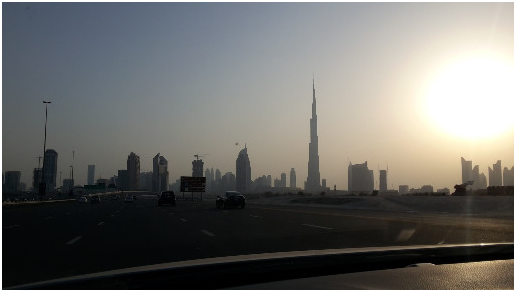The Middle East region is a vast region with some of the most attractive start-up cities globally. Start-up founders can benefit from deep networks and high-tech employees in highly developed ecosystems like Tel Aviv or well-funded and promising ecosystems like Riyadh.
Finding the right starting point is an essential first step in starting a business. We’ve identified the best cities in the Middle East that are hotspots for budding entrepreneurs. Each of these has attractive qualities to look for in your home: affordable financial resources, low taxes, and a well-educated workforce to ensure you have plenty of promising candidates.
A joint index based on several parameters, including living standards, economic factors, socio-cultural and environmental factors, and labor rights, will also be developed.
Top places to start a business in Middle East Region

Regions in the Middle East and North Africa are changing, including significant youth population growth and urbanization trends that will move large numbers of people to the main cities.
Policy changes are likely to lead to economic growth, provided that young people are adequately investing and ensures that they have employment opportunities.
An increasing proportion of this region’s population lives in the larger urban centers, with 31% of the people living in the 30 largest cities. That number will almost certainly continue to grow as more rural residents move to urban areas and new cities emerge.
The Middle East is no exception. Among the 30 largest cities, it is possible to identify the cities that form the leading centers in the trade networks and networked relationships in the region and play a vital role in the regional economic development.
These cities are suitable for institutions, company policies, and regulations, complex connectivity (infrastructure), and soft connectivity (culture, community, and modern technology). Although each city’s scale and impact will vary, cities that appear to float on top of each other have at least a few elements from each category.
-
Qatar
To start a Qatar business, you have to go through a lengthy registration process with the Ministry of Trade and Economic. As part of the registration process, a law had to be submitted, which had to be drafted and written in Arabic before it could be adopted.
Therefore, you should also find business partners who are citizens and own at least 51% of your company. The Partner is not legally obliged to make financial contributions to the company or participate in the company’s day-to-day work and, as the majority owner, can cease activities at any time. Partners must be separate Qatari or local companies wholly owned by Qatar.
-
Dubai
Due to its strategic position, active economic diversification, and excellent trade relations and prestige, Business setup in Dubai is the right for any company looking to expand or invest, especially in the Middle East, North Africa, and Central and South Asia markets or to everyone wants to do business in the Middle East region.
Dubai has established itself as the emirate and city of its oil industry and, through this industry, feeds its current success as a cosmopolitan metropolis. However, if you look at the total GDP, which reached $ 90.9 billion in 2012 and grew by around 10% over the last two years, oil and gas only contributed about 8%. Today, real estate and construction, various financial services, and information technology are the most significant income sources.
-
Abu Dhabi
Abu Dhabi is a duty-free city ideal for large-scale trade, especially as Abu Dhabi’s emirate returns all profits of foreign companies to their owners without saving any income. It makes Abu Dhabi a very competitive opportunity to choose a new place to do business. The incorporation process and company boundaries are the same in all UAE. As a non-citizen, you need an Emirati partner who owns most companies (51% or more).
-
Cairo
The country of Egypt, home to one of the oldest civilizations in human history, has undergone drastic changes. Revolution and social movements have toppled the regime and caused great upheaval and discontent across the country. Abdel Fattah al-Sisi’s recent election has appointed him president and sparked tensions a little in the capital.
Cairo is today the largest city in Egypt, Africa, and the rest of the Arab world, and its cultural significance is immeasurable for both past and present civilizations. It is also the economic center of Egypt today. Cairo is one of the best places to do business in the Middle East because of its economic importance and cultural prestige, among other special reasons.
-
Amman Jordan
At the heart of the northern Middle East, between Iraq, Israel, Palestine, Saudi Arabia, and Syria, is Jordan’s country. Its capital, Amman, was occupied by Assyrians, Romans, Turks, Umayyads, and many other great civilizations and has received many names during its long history dating back to at least the 13th century BC.
Several multinational companies are developing in Amman and operating on a regional basis there. It is the right place for anyone looking to do business in the Middle East, especially the Levant (Israel, Jordan, Lebanon, Palestine, Syria).
-
Beirut
Beirut is on the beautiful Mediterranean Sea, the capital and economic center of Lebanon. It is famous for its nightlife and a central aspect of modern Arabic pop culture. Due to its colonial history, you will find a wide variety of foreign immigrant animals and often meet people who speak English and French, even though the official language is Arabic.
Despite some 15 years of bloody civil war (1975-1990) and the most recent war with Israel (2006), Beirut’s infrastructure and economic and cultural landscape are changing rapidly, creating a business environment that competes strongly with other financial giants in the region.
Conclusion
These cities act as stabilizers in crisis areas and offer safe trade centers, innovation, and development that attract regional and multinational actors.
The region will likely continue to rely on existing and developing cities to act as an oasis in a desert with many disappointing illusions.







